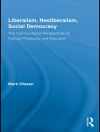This book tells the story of idealism in modern philosophy, from the seventeenth century to the turn of the twenty-first. Paul Guyer and Rolf-Peter Horstmann define idealism as the reduction of all reality to something mental in nature. Rather than distinguishing between metaphysical and epistemological versions of idealism, they distinguish between metaphysical and epistemological motivations for idealism. They argue that while metaphysical arguments for idealism have only rarely been accepted, for example by Bishop Berkeley in the early eighteenth century and the British idealists Bradley and Mc Taggart in the late nineteenth and early twentieth centuries, epistemological arguments for idealism have been widely accepted, even in the so-called analytic philosophy of the twentieth century. Guyer and Horstmann discuss many philosophers who have played a role in the development of idealism, from Descartes, Hobbes, Spinoza, Leibniz, Locke, Berkeley, and Hume, through Kant; the German idealists Fichte, Schelling, and Hegel; Schopenhauer and Nietzsche; the British and American idealists such as Green and Royce in addition to Bradley and Mc Taggart; G.E. Moore and Bertrand Russell, Neo-Kantians such as Ernst Cassirer; and twentieth-century philosophers such as Wittgenstein, Collingwood, Carnap, Sellars, and Mc Dowell.
Paul Guyer & Rolf-Peter Horstmann
Idealism in Modern Philosophy [PDF ebook]
Idealism in Modern Philosophy [PDF ebook]
Kup ten ebook, a 1 kolejny otrzymasz GRATIS!
Język Angielski ● Format PDF ● Strony 240 ● ISBN 9780192664723 ● Wydawca OUP Oxford ● Opublikowany 2023 ● Do pobrania 3 czasy ● Waluta EUR ● ID 8872620 ● Ochrona przed kopiowaniem Adobe DRM
Wymaga czytnika ebooków obsługującego DRM












